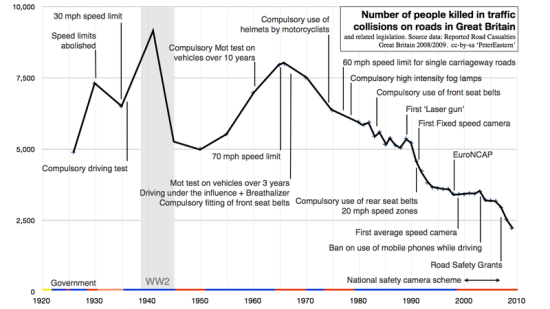I’m an arsehole. And a bigot.
Really, I am. I get angry when people take a different view from me in opposition to what I consider common sense or logical conclusion. I see things in a very black and white way, either for or against, and I make angry judgements about people who disagree with me. I often respond by losing my temper and breaking off contact.
So what is a bigot? Bigotry and bias are accusations that come up quite a lot in political discussions, and most people can easily apply them to other people without asking the question of themselves. Here’s the definition of Bigoted:
big·ot·ed
adjective/ˈbigətid/
|
“Convinced of the correctness of one’s own opinions” That pretty much defines anyone involved in political activism. But is that the sole criterion? What if a person actually IS correct? It is often impossible to judge this until later - otherwise we wouldn’t be able to disagree quite so much, and sometimes the correct answer is completely down to a person’s opinion of the best outcome.
“Prejudiced against those who hold different opinions”
prej·u·dice
| noun /ˈprejədəs/ prejudices, plural
|
I’m going to plead guilty here. I like to think that most of my opinion is based on reason, and, indeed, my own experiences and those of other people, but my perception of who might be responsible and my understanding of their motives may well be prejudiced.
Unfortunately, I am not alone in being an arsehole and a bigot. I think a huge swathe of humanity are the same. Even people that I campaign alongside and support in their politics also have their flaws and can be nasty to others. That saddens me and is often a trigger for my depression.
Earlier today I got angry about people who call those who cross picket lines “scabs” and who might shout abuse at them. I fully support the public sector strikes but I also consider that people have a right not to withdraw their labour as much as they have a right to withdraw it. In my opinion, shouting abuse at people who go in to work either because they don’t agree with the strike or because they do agree but feel unable to strike is bullying. As such, I am shocked that people who I see fighting for equality, for rights, standing up for each other, also stating that they are prepared to shout “scab” at people who they have failed to convince to go on strike. However, when I stated as much on twitter, I had this quoted to me:
And he quoted one of my own tweets in support of this statement:
http://twitter.com/#!/latentexistence/status/134788571461713921
I suppose it is true that what I said there could be considered bullying. I find the tabloid paper in question vile, their news often false and their opinions offensive. As such I hope that no-one who I know would want to read it. However It is not up to me to force their opinion on this, only to state my case and try to convince them. It is my choice whether I want to know someone or not though, and I don’t think cutting off contact is bullying if done to preserve my own sanity.
Being an arsehole, I can do something about. I can make an effort to listen to other people’s opinions, and discuss them, or ignore them rather than lose my temper. Being a bigot, I’m not sure. I hope that my opinion changes based on facts and rational argument, but ultimately much of what I think is simply based on what I feel. I do at least feel that we should all support each other and people should not hoard wealth and resources, and I hope that I would feel this way even if I were super rich. (Better hope that IT business takes off eventually!) If I am going to be a bigot, at least I am a bigot with principles.



